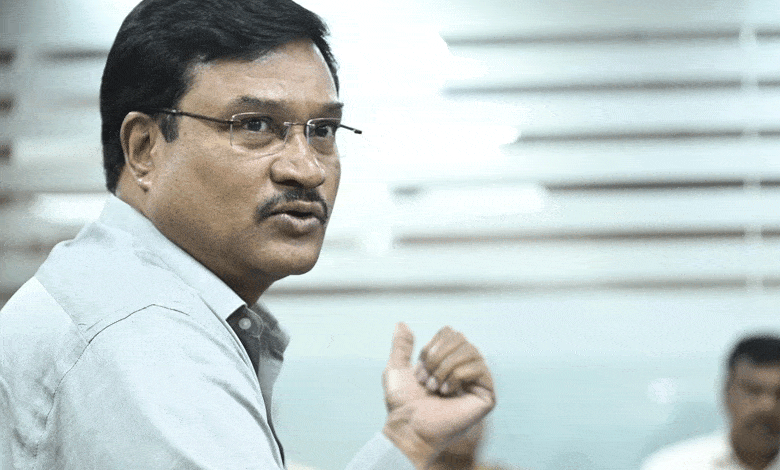Musi River Rejuvenation: HYDRAA Warns Public About Spreading Fake News Amid Growing Tensions
In a strong response to recent rumors circulating on social media, AV Ranganath, the Commissioner of the Hyderabad Disaster Response and Asset Protection Agency (HYDRAA)

Hyderabad: In a strong response to recent rumors circulating on social media, AV Ranganath, the Commissioner of the Hyderabad Disaster Response and Asset Protection Agency (HYDRAA), issued a stern warning against the spread of fake news regarding the ongoing Musi River rejuvenation project. Ranganath’s comments followed concerns raised about the death of an auto driver in Ramanthapur, who reportedly passed away from a heart attack after his house was marked for demolition as part of the project.
Table of Contents
HYDRAA Clarifies Role in Musi River Demolitions
Ranganath took to the media to clarify that HYDRAA is not responsible for the marking or demolition of properties along the Musi River. While HYDRAA plays a crucial role in disaster response and asset protection, the responsibility for property demolition lies with other authorities overseeing urban development and environmental management.
Ranganath stressed, “There are organizations spreading false information about HYDRAA’s involvement in the demolitions. I want to make it clear that HYDRAA has no role in marking or demolishing homes along the Musi River. Legal action will be taken against anyone found intentionally spreading misleading information that creates unnecessary panic.”
Death of Auto Driver Sparks Rumors
The controversy began when an auto driver in Ramanthapur was found dead from a heart attack shortly after his residence was marked for demolition. The marking was part of the ongoing Musi River rejuvenation project, a large-scale initiative to clean and revive the Musi River. However, social media rumors quickly spread, suggesting that the marking of the driver’s house, combined with the stress of possible demolition, might have contributed to his death.
This sparked concerns among residents, many of whom feared they too could face similar threats to their homes. However, Ranganath clarified that no evidence exists linking the marking of the auto driver’s house to his death, urging the public not to jump to conclusions based on unverified rumors.
Also Read: Hyderabad Police Issues Guidelines for New Year Celebrations, Here Are the Details
HYDRAA Warns of Legal Consequences for Spreading Fake News
Ranganath emphasized that the spread of fake news and misinformation could cause unnecessary panic, disturb public order, and disrupt ongoing development projects. He made it clear that spreading false or misleading information is an offense and those responsible would face legal action.
“Our city is undergoing significant development, and while we understand the concerns of residents, it is vital that information shared is based on facts and not speculation,” said Ranganath. “Misinformation only adds confusion and hinders our collective efforts to improve Hyderabad’s infrastructure and environment.”
Musi River Rejuvenation Project: Addressing Concerns of Residents
The Musi River rejuvenation project aims to clean up the heavily polluted river and convert it into a navigable waterway. As part of the project, encroachments along the riverbanks have been marked for removal, leading to the demolition of some homes. While many residents have been relocated or compensated, the project has faced opposition from some who are concerned about the displacement of their homes.
In response to these concerns, Ranganath reassured the public that all demolitions and relocations are carried out in accordance with legal procedures. “We are committed to ensuring fair compensation and adhering to the law. We encourage residents to reach out to the authorities for any clarifications regarding the project,” he said.
Ensuring Responsible Information Sharing
As Hyderabad continues its efforts to rejuvenate the Musi River, Ranganath called on residents and social media users to share verified information and avoid contributing to the spread of false claims. By fostering responsible communication, the city can avoid unnecessary tensions and ensure a smoother path for urban development.
